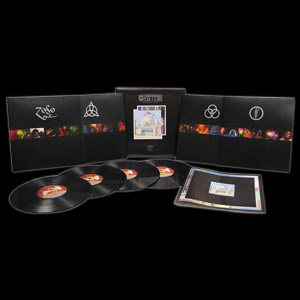Bose is a great marketing company that makes mediocre (at best) speakers. First of all, I believe that most would agree that they start their design from a flawed premise. They've always said that 7/8 of the sound we hear is reflected, as apposed to direct sound. This is why most of the drivers in a 901 face in odd directions. Ask anyone from Bose where this number comes from and they can't tell you. This is creating false space as apposed to recreating the space that is actually captured on the recording. Then you have their active equalizer that is there to compensate electronically by forcing drivers past their physical limits to get a "big" sound out of a small box. This MUST create distortion. This is only one of the products, the others are equally flawed.
Then you look at their tendency to sue people for the most goofy reasons. They sued CEDIA (Consumer Electronics Design and Installation Association), a trade association of which they are a member for the use of the word "Lifestyle" with respect to audio. Years ago they sued Thiel because they used that same model number. Which is just stupid because the whole idea copyrights is to avoid confusion in the market place. Who in the world is going to confuse Bose and Thiel? Especially when the speakers looked completely different and were designed from a completely different technical point of view?
The following is from Wikipedia, "In 1981 Bose unsuccessfully sued the magazine Consumer Reports for libel. Consumer Reports reported in a review that the sound from the system that they reviewed "tended to wander about the room." The District Court found that Consumer Reports "had published the false statement with knowledge that it was false or with reckless disregard of its truth or falsity" when it changed what the original reviewer wrote about the speakers in his pre-publication draft. The Court of Appeals reversed the trial court's ruling on liability, and the United States Supreme Court affirmed in a 6-3 vote in the case Bose Corp. v. Consumers Union of United States, Inc., finding that the statement was made without actual malice, and therefore there was no liability for libel." I can't believe that they sued someone for a bad review!
Then you look at their draconian approaches in retail such as insisting that their products MUST NOT be set up where they can be actively demoed against other brands and their Secret Police tacts of demanding that managers fire sales people that say anything remotely negative about their brand ON THE SPOT or risk being cut off as a dealer. Neither of these things are myth, I've seen them happen!







